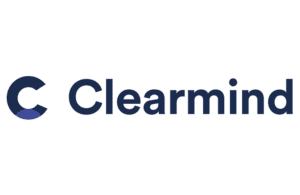 Clearmind Medicine (CSE:CMND) recently announced additional positive preclinical data related to its psychedelic molecule 5-methoxy-2-aminoindane (MEAI) for treating cocaine addiction.
Clearmind Medicine (CSE:CMND) recently announced additional positive preclinical data related to its psychedelic molecule 5-methoxy-2-aminoindane (MEAI) for treating cocaine addiction.
Professor Gal Yadid and a group of researchers from the Gonda Multidisciplinary Brain Research Center located at Bar Ilan University (Ramat Gan, Israel) performed the study based on the self-administration paradigm, which is an operant-conditioning-based model for investigating drug addiction.
In the study, rats were trained to self-administer cocaine and underwent an extinction phase in which researchers removed cocaine availability. Researchers then provided MEAI to the test group. Afterward, the researchers offered a single administration of cocaine to the rats who
were later returned to their self-administration habitat.
Animals that received MEAI had a substantially lower likelihood of attempting to self-administer cocaine.

Adi-Zuloff-Shani, Ph.D.
“We saw that a subpopulation of approximately 60% of the animals that received treatment completely responded to the treatment,” said Adi Zuloff-Shani, CEO of Clearmind. “The next step is to see if we can identify the population that might benefit from this treatment.”
“Gal Yadid has studied cocaine abuse for more than 20 years,” Zuloff-Shani. “He said he’s never seen anything like the results [from the preclinical study] where you didn’t see any withdrawal symptoms in the majority of subjects.”
The Vancouver, Canada–based company announced earlier positive preclinical data related to MEAI for cocaine abuse.
In the U.S., about 1.3 million people reported having cocaine use disorder in the past 12 months, according to the 2020 National Survey on Drug Use and Health.
In 2020, almost 19,447 people in the U.S. died in an overdose involving cocaine.
Cocaine abuse, however, is “a global problem with no dedicated treatment,” Zuloff-Shani stressed.
Clearmind Medicine is also aiming to use MEAI to treat alcohol use disorder. The drug itself reportedly induces a “mild euphoric, alcohol-like tipsy experience” while subsequently could reduce alcohol cravings, according to a 2017 article in Toxicology and Applied Pharmacology.
Zuloff-Shani said she believes MEAI has the potential to “cure one of the most devastating addictions I think society knows about today — alcoholism.”
“The morbidity and mortality associated with alcoholism is much higher than for any drug substance,” Zuloff-Shani added.
The company is currently in the final steps of conducting IND-enabling studies, which include preclinical research that sheds light on a drug’s safety profile and potential dosing in humans.
There are currently a handful of FDA-approved drugs for treating alcohol use disorder. One example is naltrexone, which is also indicated for opioid use disorder. Patients taking naltrexone for alcohol use disorder must not be physically dependent on alcohol or other substances.
Alcohol abuse represents the third-leading preventable cause of death in the U.S., according to the NIH.
While researchers have investigated the use of several drugs to treat cocaine dependence, there are no FDA-approved drugs for the condition.
Clearmind is also researching the potential of MEAI to treat binge eating.
The company is in the process of uplisting its stock to Nasdaq.